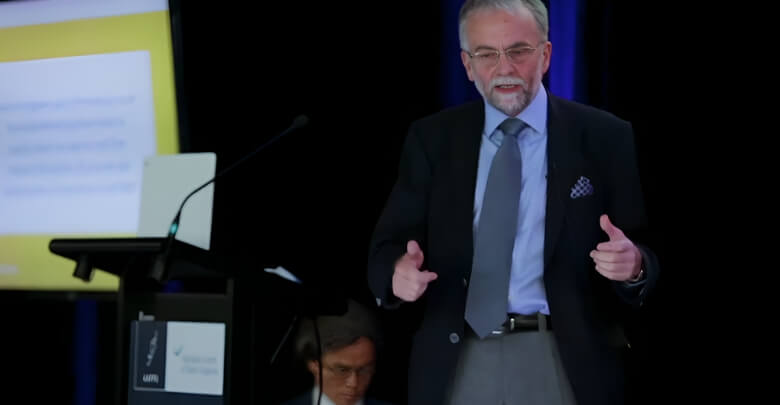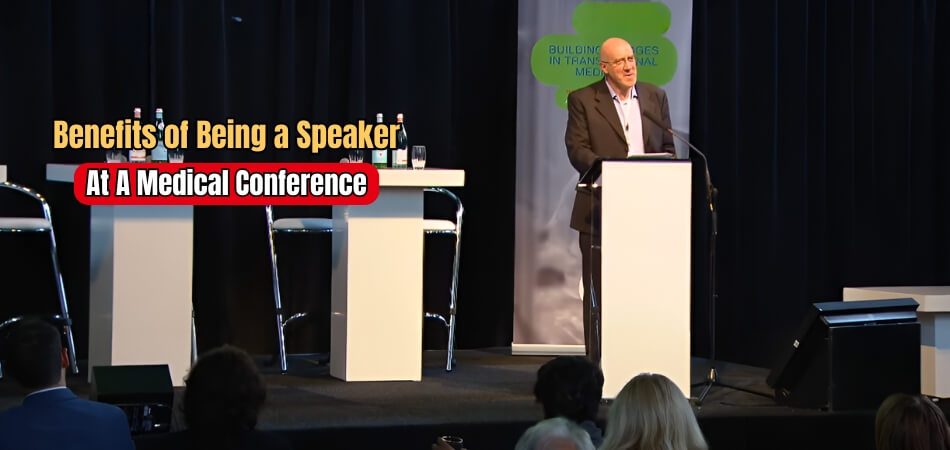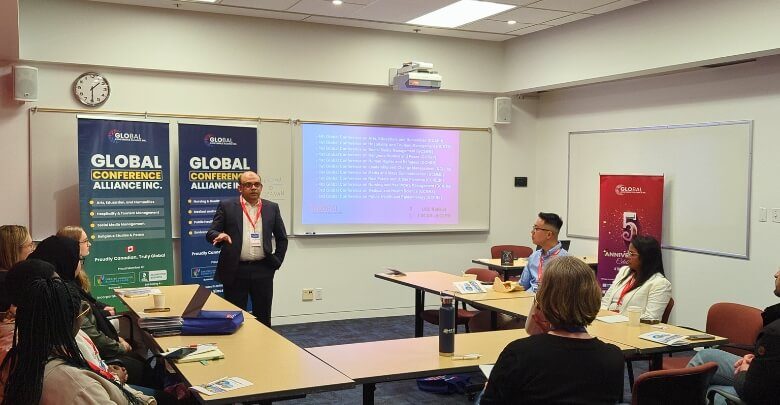Being able to speak at a medical conference is essential for healthcare professionals aiming to expand their influence and expertise. However, a common question many people have is, “What are the benefits of being a speaker at a medical conference?”
The benefits of being a speaker go beyond elevating your visibility and authority within the medical community, as they also enable you to network with peers and industry leaders. Through these interactions, collaborations are promoted that drive advancements in medical research and practice.
Aside from this, as a speaker, you can contribute directly to medical knowledge and innovation by sharing your findings and insights. The benefits of being a speaker do not end here. Stay with us and learn about the benefits of speaking at a medical conference.
Should You Consider Speaking at Medical Conferences for Career Growth?
Speaking at a medical conference can be a significant career move for healthcare professionals. It offers an excellent opportunity to showcase your expertise and set yourself apart from competitors. This increased visibility often leads to increased professional credibility and greater respect among peers.

Collaborating internationally is possible by speaking at a foreign conference, such as a European, American, or Canadian medical conference. These opportunities are not only prestigious, they also provide you with the opportunity to broaden your professional network across national boundaries. You’ll also get a better perspective of global healthcare trends by engaging with an international audience.
Since Canada has been a reputed conference organizer, international attendees should look forward to joining a medical conference in Canada. Potential global attendees can attend medical conferences in Canada 2024 with invitation letter from reputed organizers and institutes. This brings you the opportunity to become a renowned speaker at medical conferences.
What Are the Benefits of Being a Speaker at a Medical Conference?
The benefits of being a speaker at a medical conference are vast and it increases both your professional credibility and your personal development. In this way, you can exchange valuable insights with fellow professionals. International attendees can expect to avail of all the benefits of attending a medical conference as a speaker. The following are some of the benefits of Being a Speaker at a Medical Conference:
Enhanced Professional Visibility
Speaking at conferences is a great way to get noticed by your friends and colleagues. Your presence on this stage positions you as an expert. Colleagues and leaders notice your contributions. This recognition can open doors to new professional opportunities. Additionally, being visible at such events may attract media attention or invitations to future speaking engagements.
Authority in Your Field
The act of speaking at a conference establishes your status as a thought leader. It demonstrates your in-depth knowledge and commitment to your field. With your knowledge and innovations, you convey up-to-date information to your audience. This may lead to others seeking your advice and collaboration. Over time, this authority can enhance your reputation within the medical community and beyond.
Networking Opportunities
Globally, conferences draw like-minded professionals. You can expand your professional network by participating in discussions, which often include networking opportunities with conference speakers that can lead to collaborations and job offers. With every interaction, your circle of influence grows. These relationships can provide ongoing support and resources throughout your career.
Learning and Development
Presenting at conferences pushes you to stay updated on recent advancements. When you’re preparing your speech, you have to do a lot of research. This process increases your knowledge base. Also, audience feedback and questions give you a fresh perspective. This continuous learning keeps your skills sharp and relevant in a rapidly evolving field.
Peer Feedback
Receiving feedback is essential to professional growth. Your ideas and research methodologies are critically analyzed. This constructive criticism refines your future work. Take advantage of this feedback for continuous improvement. Engaging with peers also fosters an environment of collaborative growth and innovation.
Increased Publication Chances
Often, conference talks are published in journals or conference proceedings. This provides another medium to share your work. Publication increases your work’s reach and citation potential. It adds a prestigious layer to your professional credentials. Consequently, published work can enhance your curriculum vitae and bolster your academic standing.
Personal Satisfaction
Sharing your passion brings you a great deal of fulfillment. It feels rewarding to contribute meaningfully to the medical community. Having this experience can be incredibly motivating. It often strengthens your medical career commitment. Ultimately, the act of sharing knowledge can ignite a deeper passion for your field and inspire others.
How to Be a Speaker at a Medical Conference?
Speaking at a medical conference is a prestigious milestone for any healthcare professional, and luckily the process is easy. Attendees can follow the briefly given steps to become a medical conference speaker, which will help make your application stand out and get an invite to speak at a medical conference.
Step 1: Recognizing the Conference Theme
You can begin by thoroughly researching the conference theme. This initial step assures that your proposed presentation aligns with the interests and expectations of attendees. With a deep knowledge of the theme, you can adapt your content to meet the audience’s needs and increase its impact.
Step 2: Crafting a Compelling Abstract
The abstract you submit with your proposal plays a crucial role. It should concisely convey your unique perspective and the value you bring to the conference. Be sure to highlight your expertise, how it relates to the conference theme, and the significance of your research. Selection committees are more likely to pay attention to a well-written abstract.
Step 3: Adhering to Submission Guidelines
The conference’s submission guidelines should be strictly followed when submitting your proposal. It includes word count, formatting, and following deadlines. By focusing on these details, you can demonstrate professionalism and respect for the submission process.
Step 4: Official Submission Procedures
Whenever possible, submit your proposal through an online portal or to a specific email provided by the conference organizer. Be sure to confirm receipt of your submission to verify that it has been received successfully.
Step 5: Networking with Industry Leaders
Try to make connections with key members of the community, like well-known conference organizers, past speakers, and committee members. These connections can offer invaluable insights into the selection process and increase your chances of being selected.
Step 6: Preparing for Organizer Response
After submitting your proposal, be prepared to interact with conference organizers. Respond promptly to any follow-up inquiries or requests for additional information. You’ll make a valuable contribution if you show up ready and excited to participate in the conference.
Challenges You Can Face While Speaking at A Medical Conference
Medical conferences can be challenging as well as rewarding when it comes to speaking. Every speaker may encounter unique obstacles that challenge their preparation and adaptability. Being familiar with these potential challenges can help you better prepare and maximize your speaking experience.
Nervousness and Anxiety
Public speaking can induce significant stress for many individuals. It is common to feel nervous before stepping onto the stage, which can affect your delivery. Managing this anxiety is crucial for a clear and confident presentation. Techniques such as deep breathing, visualization, and practice can help alleviate nervousness and enhance your performance.
Technical Difficulties
Technical issues, such as equipment failure or glitches, can disrupt your presentation unexpectedly. This could include problems with projectors, microphones, or presentation software. Always prepare a backup plan to handle such issues smoothly. This could involve having printed materials or a backup device ready to ensure that your presentation continues without major interruptions.
Audience Engagement
Keeping the audience engaged throughout your presentation can be a challenge. Attention spans can wane, especially in long sessions. To maintain interest, consider incorporating interactive elements such as polls, Q&A segments, or discussions. Engaging the audience encourages participation and makes your presentation more memorable.
Complex Questions
Handling tough questions from the audience can be intimidating, especially if they challenge your expertise. It’s important to stay calm and composed when responding. Be prepared to answer questions confidently by anticipating potential inquiries related to your topic. If you don’t know an answer, it’s perfectly acceptable to acknowledge it and offer to follow up later.
Language Barriers
Speaking at international conferences may present language challenges for both you and your audience. Miscommunication can lead to misunderstandings about your message. To address this, make your language clear and simple, avoiding jargon and overly complex terms. This approach helps ensure that your message is accessible to everyone, regardless of their language proficiency.
Essential Tips for Effective Presentation at Medical Conferences
An experience such as presenting at a medical conference can be transformational, enhancing both your professional and personal development. However, delivering an effective presentation requires careful planning and execution. Here are some tips to keep your audience engaged:
Know Your Audience
Take the time to find out the background and interests of your audience. Prepare your content to meet their expectations and needs. Use language that is clear and appropriate for their expertise. This approach ensures engagement and comprehension.
Prepare Thoroughly
Research your topic extensively to cover all aspects. Practice your presentation multiple times to maintain fluency. Anticipate potential questions and prepare answers. This preparation boosts your confidence and performance.
Create Clear Visuals
Use visuals that complement and enhance your spoken words. Be sure your slides are simple and not overcrowded with information. Use charts and images to illustrate key points. Having clear visuals makes complex topics easier to understand.
Engage with the Audience
Interact with your audience to maintain their interest. Ask questions and encourage participation during your talk. Be approachable and make eye contact with attendees. Engagement builds a connection and keeps the audience attentive.
Manage Your Time
Plan your presentation to fit within the allotted time. Be sure to prioritize your key points to avoid running over. You can keep track of your progress by using a timer. Efficient time management respects your audience and ensures complete coverage of your topic.
Frequently Asked Questions
This section addresses common questions regarding the advantages of speaking at medical conferences. Understanding these benefits can help you appreciate the value of sharing your knowledge and experiences with others in the medical community.
Will Presenting at Conferences Help in Securing Funding for Research?
Yes, presenting at conferences can help secure funding for research by attracting interest from funding agencies and sponsors looking to support innovative projects and advancements in healthcare. When researchers showcase their work, they can engage potential funders who are keen to invest in promising ideas.
Can Presenting at Conferences Help in Overcoming Imposter Syndrome?
Yes, preparing and delivering presentations at conferences can boost your self-confidence and diminish feelings of imposter syndrome. When you share your knowledge with an audience, it validates your expertise and capabilities among peers. This experience reinforces your role as a credible professional in your field, making it easier to overcome self-doubt.
How Can Speaking at Conferences Contribute to Promoting Ethical Standards and Practices in Healthcare?
Presenting at conferences provides a platform to discuss ethical dilemmas, guidelines, and best practices in healthcare, promoting adherence to ethical standards and enhancing patient care quality. By sharing insights on ethical issues, speakers can foster important conversations that influence the practices of their peers.
Will Speaking at Conferences Help in Gaining Media Exposure?
Yes, conferences often attract media attention. Presenting groundbreaking research or innovative practices can lead to media coverage, increasing visibility and recognition beyond the medical community. This exposure can enhance your professional reputation and create additional opportunities for collaboration or funding.
Can Presenting at Conferences Enhance Advocacy Efforts for Public Health Initiatives?
Yes, speaking at conferences enables you to advocate for public health issues and policies that improve community health outcomes, mobilizing support and action from healthcare professionals and policymakers. By addressing critical health topics in your presentations, you can inspire others to engage in advocacy efforts.
Final Thoughts
We have seen how speaking at medical conferences contributes to your career in several ways. As a speaker, you not only gain professional visibility but also strengthen your authority within the industry. Through such platforms, healthcare professionals can extend their influence, sharing vital insights and innovative practices that shape the future of medicine.
So, now we know “What are the benefits of being a speaker at a medical conference?” Their contribution extends beyond personal gain and builds a collaborative environment that benefits the entire medical community. By contributing to medical knowledge, encouraging interdisciplinary collaborations, and nurturing global connections, speakers are key to advancing healthcare and research. This unique opportunity is a foundation for professional and personal growth in the medical field.







